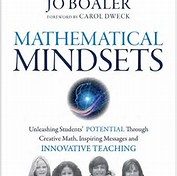February 2017
Please follow this link to read the latest Numeracy and Mathematics Resource Guide, this guide is designed to be interactive and links to all of the recent and relevant documentation from Education Scotland.
numeracy-and-mathematics-resource-guide-february-2016
The yammer page is now up and running! Log in as usual to Glow, and find yammer within the Microsoft Office applications available. The group is called Numeracy and Mathematics in Argyll and Bute – an exciting title! Looking forward to chatting to you all and sharing resources! If anyone is having difficulty accessing Glow, please check with your school administrator in the first instance or get in touch with Maria McArthur.
January 2017
Numeracy update –
We have developed the Numeracy website on SALi and we would urge all practitioners to access the materials on there and feed back to us how this could be improved. It is a work in progress and we are continuing to build and grow content. S6 pupils at Hermitage Academy have been working with Derek Munro to create short videos to clearly identify the steps in numerical processes. Presently, there are a couple of examples on SALi in the Numeracy section, under Fractions, Percentages and Decimals. We would like to develop this further, across the BGE. If there are any schools who would be willing to assist us, please get in touch.
A Numeracy Yammer page, accessed through Glow, is currently being set up for all practitioners in Argyll and Bute to share ideas, ask for support and generally have a ‘yammer’ about what is going on in your schools – more details to follow.
Schools have been making use of Sumdog and there has been some very positive feedback. If you have any problems regarding the website, please contact our dedicated team, argyllandbute@sumdog.com. All schools who attended the successful training day on 29th November have received their copy of Number Talks as well as supportive materials, including the Mental Skills Progression Framework. If you want supportive materials, please refer to SALi, Numeracy, Number Talks. If you do not have a copy of your Number Talks book yet, please email us. Maria is organising twilight sessions linked to Mental Agility. So far the following dates have been organised:
Thursday 9th February@Rothesay Joint Campus – 9.30 am
Thursday 16th February@Rockfield Primary School, Oban – afternoon session, starting at 1pm.
Wednesday 15th March@Innellan Primary School, Dunoon – 3.15pm.
If you wish to attend one of these sessions please contact Maria.Mcarthur2@argyll-bute.gov.uk. Alternatively, if your Cluster is interested and wishes to schedule their own session, please contact us.
IMPORTANT DATES FOR YOUR DIARIES!
Lynda Keith will present two seminars:
6th March for leaders and managers – Leading Learning in Maths and Numeracy and Developing School Policy for Numeracy and Mathematics;
7th March for practitioners – Developing Growth Mindsets in Numeracy and Mathematics and Numeracy across Learning.
May – we are organising a taster day on Numicon – more information to follow!
If you wish to attend any of these training days please contact Maria.Mcarthur2@argyll-bute.gov.uk to book a place.
October 2016
numeracy-update-for-argyll-and-bute



